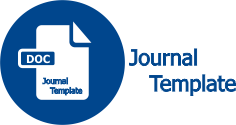Pengaruh Model Pembelajaran dan Gaya Belajar terhadap Hasil Belajar Peserta Didik
(1) Universitas Negeri Makassar
(2) Universitas Negeri Makassar
(3) Universitas Negeri Makassar
(*) Corresponding Author
DOI: https://doi.org/10.26858/cer.v5i2.32725
Abstract
Keywords
Full Text:
PDFReferences
A. M, Sardiman. (2009). Interaksi dan Motivasi Belajar Mengajar. Jakarta: PT. Rajawali Pers.
Ali, M., & Dini, D. S. (2018). Pengaruh Model Discovery Leraning Terhadap Hasil Belajar Peserta Didik Pada Konsep Jamur. Bioedusiana, 3(2).
Anurrahman. (2014). Faktor Hasil Belajar. Jakarta: PT. Rajawali Pers.
Arikunto, S. (2001). Dasar Dasar Evaluasi Pendidikan. Jakarta: Rineka Cipta.
Bahari, N.K.I., dkk. (2018). Pengaruh Model Discovery Learning Berbantuan Media Lingkungan Alam Sekitar terhadap Hasil Belajar IPA. Jurnal Ilmiah Sekolah Dasar, 2(2).
Bire, A. L., dkk. (2014). Pengaruh Gaya Belajar Visual, Auditorial, Dan Kinestetik Terhadap Prestasi Belajar Siswa. Jurnal Kependidikan, 44(2).
DePorter, B., & Hernacki. (2000). Quantum Teaching. Penerjemah: Ary Nilandary. Bandung: Kaifa.
Hasyim, M., Muris, M. & Yani, A. (2014). Pengaruh Model Pembelajaran dan Gaya Belajar terhadap Keterampilan Proses Sains Peserta Didik Kelas VII SMP Negeri 30 Makassar. Jurnal Riset dan Kajian Pendidikan Fisika, 1(2).
Iskandar. (2012). Psikologi Pendidikan Sebuah Orientasi Baru. Jakarta: Referensi.
Mubarok, C., & Sulistyo, E. (2014). Penerapan Model Pembelajaran Discovery Learning terhadap Hasil Belajar Siswa Kelas X TAV pada Standar Kompetensi Melakukan Instalasi Sound System di SMK Negeri 2 Surabaya. Jurnal Pendidikan Teknik Elektro, 3(1).
Parshnig, B. (2007). The Power of Learning Style: Memacu Anak Melejitkan Prestasi Dengan Mengenali Gaya Belajar Mereka. Penerjemah: Nina Fauziah. Bandung: Kaifa.
Rizky, M., dkk. (2017). Faktor-Faktor Penyebab Kesulitan Belajar Peserta Didik Pada Mata Pelajaran Menggambar Teknik. Jurnal PenSil FT UNJ. IX(1).
Saputra, H. D., dkk. (2018). Pengaruh Motivasi Terhadap Hasil Belajar Siswa SMK. Jurnal Inovasi Vokasional dan Teknologi. 18(1).
Sopiatin, P., & Sahrani, S. (2011). Psikologi Belajar dalam Perspektif Islam. Bogor: Ghalia Indonesia.
Suprijono, A. (2015). Cooperative Learning Teori dan Aplikasi PAIKEM. Surabaya: Pustaka Pelajar.
Widyawati, S. (2016). Pengaruh Gaya Belajar Terhadap Prestasi Belajar Mahasiswa Program Studi Pendidikan Matematika (IAIM NU) Metro. Al-Jabar: Jurnal Pendidikan Matematika. 7(1).
Article Metrics
Abstract view : 393 times | PDF view : 89 timesRefbacks
- There are currently no refbacks.
Jurnal dipublikasikan oleh: Program Studi Pendidikan Kimia
Program Pascasarjana Universitas Negeri Makassar
Alamat JL. Bonto Langkasa Gunung Sari Makassar, 90222
Kampus PPs UNM Makassar Gedung AD ruang 406 Lt 4, Indonesia.Phone 082393643737/085145825311/085242228678
CER UNM Indexed by:

Chemistry Education Review (CER) is licensed under a Creative Commons Attribution-NonCommercial 4.0 International License.










